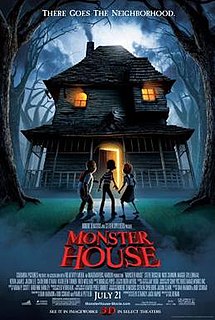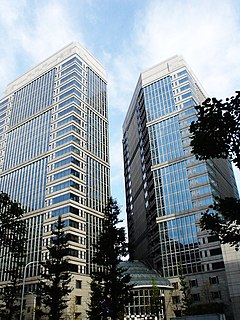Sakura is the Japanese term for ornamental cherry blossom trees and their blossoms.
Chieko Ochi, born Chieko Kawabe (河辺千恵子) February 24, 1987 in Tokyo, is a Japanese singer, model and actress. She played Sailor Mercury in the Sailor Moon musicals and was Naru Osaka in the live-action Sailor Moon series. Several of her songs have been used in anime series and other television shows, from a localization of Lizzie McGuire to Ouran High School Host Club.
CooRie is a self-produced Japanese music unit by singer-songwriter Rino that performs songs for anime and games. CooRie used to be a two-person unit when it debuted in 2003, with Rino doing the lyrics and vocals and Naoyuki Osada doing the music compositions and arrangements. After Osada left by the end of 2003 Rino maintained the name CooRie and composed the music by herself, although she sometimes sings under her own name, especially if the song is for adult games. CooRie's records are released under Lantis and Mellow Head.

Sound Horizon is a Japanese musical group with composer Revo as the leader. They describe themselves as a "fantasy band" and have released works that closely resemble classical suites. Their songs often revolve around historical events and classic fairytales.

"Sakura Sake" is a single by Japanese boy band Arashi. It was released on 22 March 2005 through J Storm as the first single from their fifth studio album One (2005). The song was written by Takeshi Aida, Sho Sakurai, and Shin Tanimoto. "Sakura Sake" was released in two editions: Regular Edition and Limited Edition. The single peaked at number one on the Oricon Singles Chart, selling 115,000 copies in its first week. The single was certified Gold by the Recording Industry Association of Japan in March 2005 for shipments of 100,000 units.
Yorico, real name Yoriko Takano, born May 13, 1984, is a female Japanese singer-songwriter from Utsunomiya. She is mostly known for her songs used in Japanese television shows, including several that had made the Oricon charts, and for her song "Break the Cocoon", which was used as ending theme in the anime series Speed Grapher.

Supercell is an 11-member Japanese pop band led by musician and songwriter Ryo, which formed in 2007 as a dōjin music band. The other 10 members are artists and designers who provide illustrations in album booklets and music videos. Supercell started out by making use of the Hatsune Miku Vocaloid singing synthesizer to produce vocals for songs submitted to the Nico Nico Douga video sharing website. The popularity of the songs led the band to release their independent self-titled album Supercell (2008). Supercell later signed to Sony Music Entertainment Japan and had a professional release of their Supercell album in March 2009, which was updated with more songs.

Hajimari no Uta is the fourth studio album by Ikimono-gakari, released in Japan on December 23, 2009. A limited edition version included a bonus DVD with footage from their concert "Ikimono Gakari no Minasan, Konni Tour!! 2009 - My song Your song -" performance on May 25, 2009 at Shibuya C.C. Lemon Hall, plus special booklet, and ikimono card 017.
"Sakura" is the debut single of Japanese trio Ikimono-gakari, released in Japan on March 15, 2006. The single peaked at number 17 on the weekly Oricon chart, charting for 31 weeks. It also reached number 182 on the yearly chart for 2006. "Sakura" was certified platinum by the Recording Industry Association of Japan.

"Kimi no Shiranai Monogatari" is a J-pop song by the Japanese band Supercell, written by Ryo. Supercell released it as their debut single in August 2009 by Sony Music. The title track was the ending theme song to the 2009 Bakemonogatari anime series, and the B-side track "Love & Roll" was the theme song for the 2009 Cencoroll anime film. A music video was produced for "Kimi no Shiranai Monogatari", directed by Hirohisa Sasaki. Lyrically, the song deals with an unrequited love.
Ikimono-bakari Members Best Selection (いきものばかり~メンバーズBESTセレクション~) is Japanese pop rock band Ikimono-gakari's first greatest hits album. It was released on 3 November 2010 by Sony Music Entertainment Japan. The album features 31 previously released tracks and three new songs: "Ima Hashiridaseba", "Spirits", and "Kaze to Mirai".
This is the discography of Japanese pop group Ikimono-gakari, who have released three Indie albums prior to 2006, and seven studio albums, three compilation albums, and numerous singles since joining Epic Records in 2006.
Newtral is the fifth studio album by Ikimono-gakari, released in Japan on February 29, 2012. It has reached number one on the Oricon Weekly charts, and became the group's fourth consecutive number-one album.
I is the sixth studio album by Ikimono-gakari, released in Japan on July 24, 2013. It reached number one in the Oricon weekly charts for the week ending August 5 of that year making it the group's sixth consecutive number-one album. Consequently, Ikimono-gakari became the first mixed group in over seventeen years to achieve six consecutive number one albums on the Oricon weekly chart.
Barādon (バラー丼) is the first ballad greatest hits album released by Japanese pop rock band Ikimono-gakari. It was released on December 19, 2012 and contains twelve previously released tracks plus a version of the single "Kaze ga Fuiteiru" recorded in the United Kingdom. Having sold 108,000 copies in its first week of sales, it reached number 1 on the Oricon weekly charts for the week ending December 31, 2012 making it the group's fifth consecutive number one album. Consequently, Ikimono-gakari became the first mixed group in over sixteen years to achieve five consecutive number one albums on the Oricon weekly chart.
Kinoko Teikoku is a Japanese shoegazing/dream pop band. Their first EP, Long Good Bye, peaked in the Oricon Albums Chart at #56 on the week of December 4, 2013. Their 2016 album “Ai no Yukue” peaked at #19 on Oricon Album Chart on December 14, 2016.

"Moment" is a song by Japanese band SMAP. Released as a single on August 1, 2012, the song was used as the theme song for the TBS Television broadcast of the 2012 Summer Olympics, for which SMAP member Masahiro Nakai was the main sportscaster. It was written by the band Sakanaction's vocalist and songwriter Ichiro Yamaguchi, while the single's B-side "Te o Tsunagō" was written by producer Kenichi Maeyamada. The single was commercially successful, reaching number one on Oricon's singles chart, and was certified gold by the Recording Industry Association of Japan.
Masayoshi Ōishi is a Japanese musician and singer-songwriter from Uwajima, Ehime. His professional music career began in 2001 as vocalist of the band Sound Schedule. Following the band's disbandment in 2006, he began a solo career, releasing his debut single "Honoka Terasu" in 2008. Sound Schedule reunited in 2011, with Ōishi returning as the band's vocalist.












